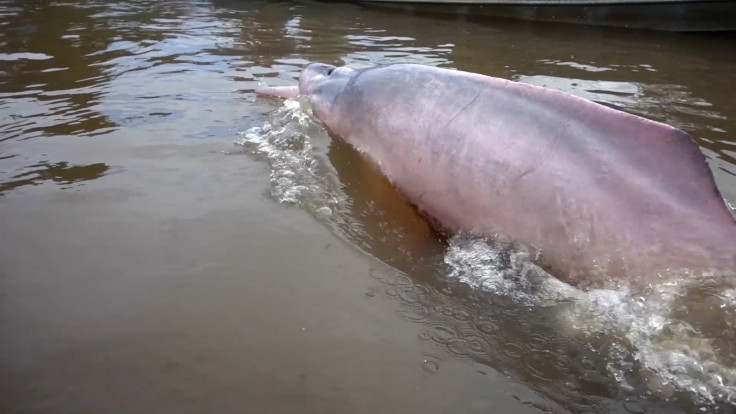WWF tracking dolphins down the Amazon in scientific first
Knowledge about river dolphins is fundamental to safeguarding their survival.
The World Wide Fund for Nature is tracking river dolphins in the Amazon for the first time, between Brazil, Colombia and Bolivia and has managed to tag 10 Amazon river dolphins with mini transmitters.
The operations took place in partnership with the Mamirauá Institute, Omacha Foundation, FaunAgua, Pro Delphinus, the Chico Mendes Institute for Biodiversity Conservation and the State Department of Environment of Amazonas.
The team first tagged single dolphins in Brazil, from 5 to 10 October 2017. Then did the same in Colombia, where it tagged more dolphins between 29 November and 1 October. Tagging is ongoing in Bolivia and comes to an end on 7 December.
The team of researchers and locals followed a strict protocol where they had to identify the best place to "capture" the dolphins. Once they had caught a dolphin, they would take blood samples and tag the animal with the transmitter. The whole process took about 15 minutes for each dolphin.
The conservation group hope that the transmitters, which communicate the dolphins' every movement, will help researchers understand where they go to feed and how far they migrate along the Amazon River.
"Tagging these dolphins is the start of a new era for our work because we hope to be able to map where they go when they disappear from sight," says WWF Conservation Specialist Marcelo Oliveira.
We still have a lot to learn about the amazon river dolphins, the ocean dolphin's pink cousins. The mysterious species is classified as "data deficient" on the International Union for Conservation of Nature and Natural Resources' Red List of threatened species (IUCNR).
"Satellite tracking will help us better understand the lives of the river dolphin more than ever before, helping to transform our approach to protecting them," says Oliveira.
Knowing more about the river dolphins is fundamental in safeguarding their survival in an environment that's increasingly affected by man-made activities such as gold mining and planned dams.
"Mercury from illegal gold mining is poisoning their waters and food and dams are cutting off migratory routes, adds Oliveira, "WWF's objective is to understand the effects of these threats on river dolphin populations which have been isolated."
In order to make the project happen, WWF worked hand in hand with Colombian research partner Fundación Omacha.
"This tagging project is critical because it will generate information that will enable governments across the region to target resources to protect dolphins and their habitats, which so many other species and communities also depend on," says Fernando Trujillo from Fundación Omacha.
Trujillo stresses that the future of river dolphins in the Amazon is intimately linked to the futures of other animal species as well as humans.
WWF is already looking at data provided by the transmitters, and will continue monitoring the dolphins throughout the coming months and will tag more of the marine animals if it proves a success.























